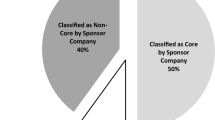Abstract
The Tufts Center for the Study of Drug Development and Medidata Solutions Inc analyzed data from 9737 protocols and 130,601 investigative site contracts associated with these protocols to derive updated benchmarks characterizing protocol complexity. The results of the study indicate that protocol design complexity continues to grow rapidly. Nearly all phase I, II, and III complexity measures associated with protocol execution increased significantly (eg, P <.0001) from 2001–2005 to 2011–2015. These measures include the number of unique and total procedures performed per patient over the course of a study, the site work effort to administer protocol procedures, the number of study volunteer visits, and the total number of procedures performed per study volunteer visit. The total cost per planned study volunteer per visit also increased significantly (eg, P <.0001) as did the total cost per study volunteer across all planned study visits. Phase I protocols remain the most complex and the most demanding to execute. Phase III protocols have seen the most substantial growth in protocol complexity. Phase IV protocols saw only modest increases in executional complexity during the 10-year time horizon. The implications of the study findings are discussed.
Similar content being viewed by others
References
Rosenblatt M. The large pharmaceutical company perspective. N Engl J Med. 2017;376:52–60.
Schuler P, Heering C. What makes a good protocol better? In: Schuler P, Buckley B, eds. Reengineering Clinical Trials. London: Academic Press; 2015:137–144.
DiMasi JA, Grabowski HG. The cost of biopharmaceutical R&D: is biotech different? Manage Decis Econ. 2007;28:469–479.
Wampler S. Tackling protocol complexity. Good Clin Pract J. 2000;7:6–8.
Fast Track Systems. Index of clinical study complexity by year, phases I-IV. In: Mathieu M, ed. Parexel’s Pharmaceutical R&D Statistical Sourcebook, 2007/2008. Waltham, MA: Parexel International Corp; 2007:116.
Kahn M, Broverman C, Wu N, et al. A model-based method for improving protocol complexity. Appl Clin Trials, May 2002:40–50.
Getz KA, Stergiopoulos S, Marlborough M, Whitehill J, Curran M, Kaitin KI. Quantifying the magnitude and cost of collecting extraneous protocol data. Am J Ther. 2013;22:117–124.
Getz KA, Stergiopoulos S, Short M, et al. The impact of protocol amendments on clinical trial performance and cost. Therapeutic Innovation & Regulatory Science. 2016;50.
Getz K, Wenger J, Campo R, Seguine E, Kaitin K. Assessing the impact of protocol design change on clinical trial performance. Am J Ther. 2008;15:450–457.
Maxwell S, Zuckerman S, Berenson R. Use of physician’s services under Medicare’s resource-based payments. N Engl J Med. 2007;356:1853–1861.
Boericke K, Gwinn B. Planned to perfection. Int Clin Trials. 2010;17:26–30.
Andersen J, Fass R, van der Horst C. Factors associated with early study discontinuation in AACTG studies, DACS 200. Contemp Clin Trials. 2007;28:583–592.
Clark T. Data is king. Int Clin Trials. 2012;173:32–42.
Friedman L, Furberg C, DeMets DL. Data collection and quality control. In: the Fundamentals of Clinical Trials. Cham, Switzerland: Springer International; 2010:199–214.
Nahm ML, Pieper CF, Cunningham MM. Quantifying data quality for clinical trials using electronic data capture. PLoS One. 2008;3:e3049.
Ross S, Grant A, Counsell C, Gillespie W, Russell I, Prescott R. Barriers to participation in randomized controlled trials—a systematic review. J Clin Epidemiol. 1999;52:1143–1156.
Getz KA, Kim J, Stergiopoulos S, Kaitin KI. New governance mechanisms to optimize protocol design. Therapeutic Innovation & Regulatory Science. 2013;47:651–655.
Author information
Authors and Affiliations
Corresponding author
Rights and permissions
About this article
Cite this article
Getz, K.A., Campo, R.A. New Benchmarks Characterizing Growth in Protocol Design Complexity. Ther Innov Regul Sci 52, 22–28 (2018). https://doi.org/10.1177/2168479017713039
Published:
Issue Date:
DOI: https://doi.org/10.1177/2168479017713039




